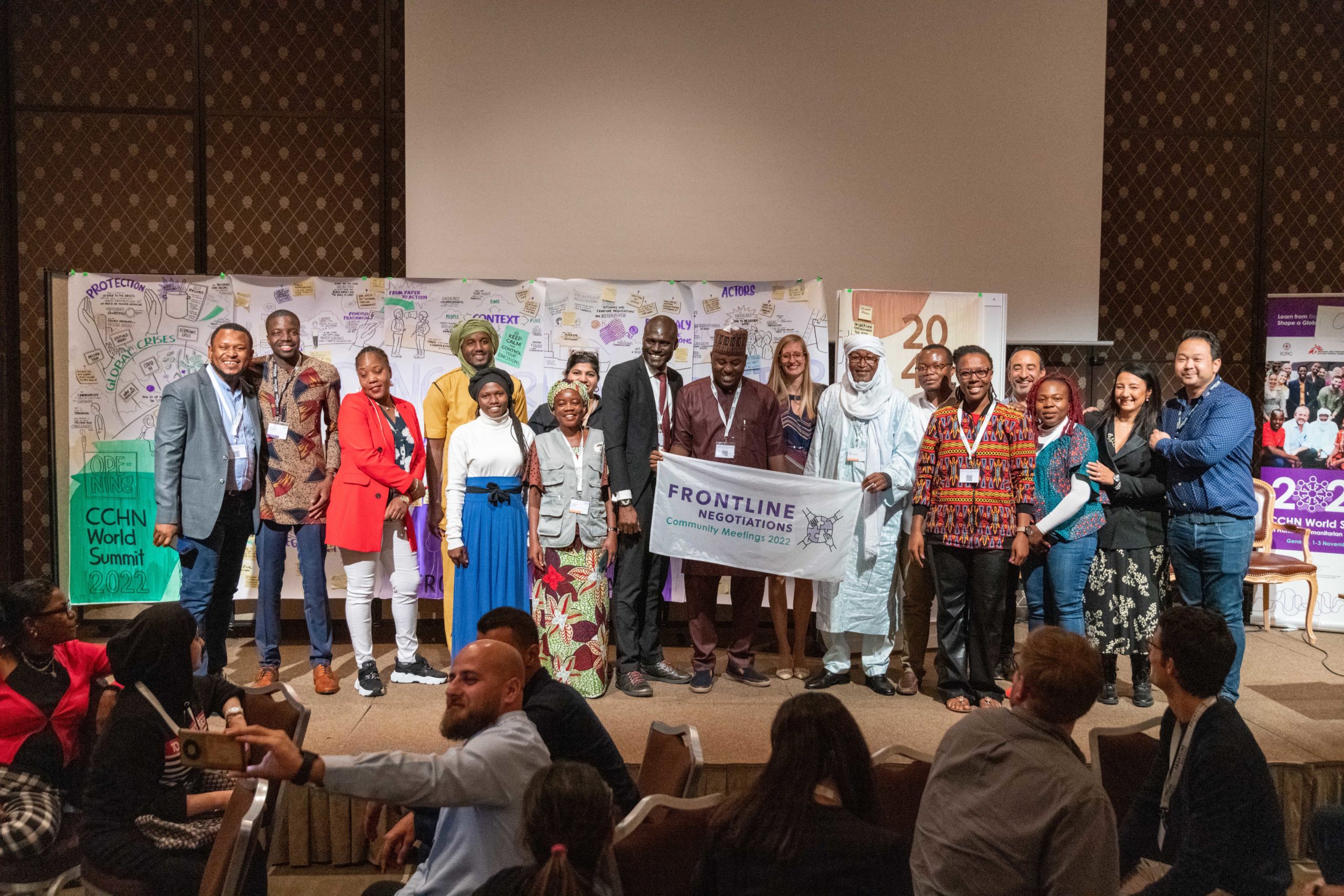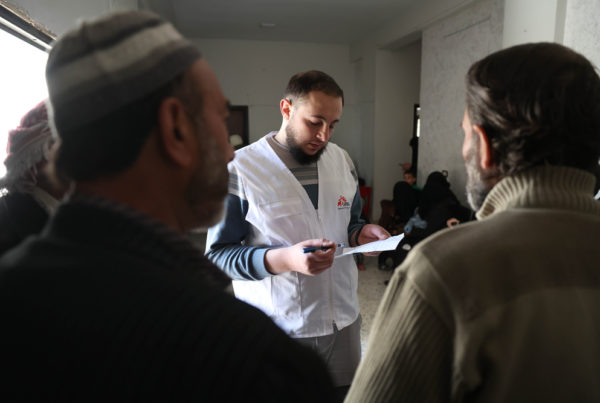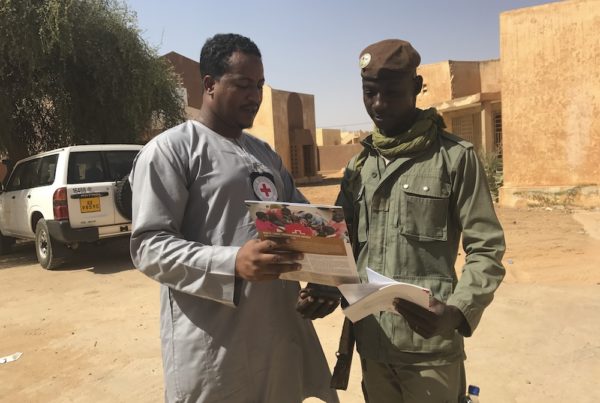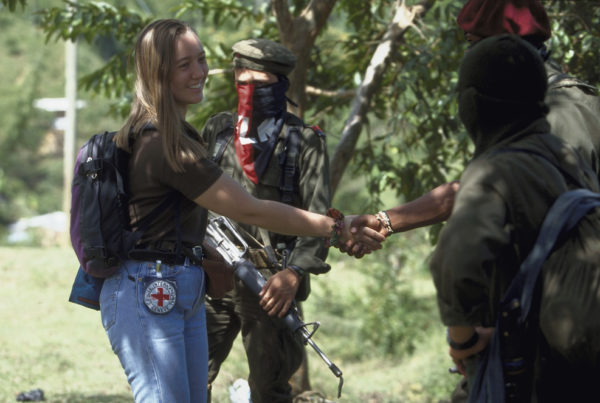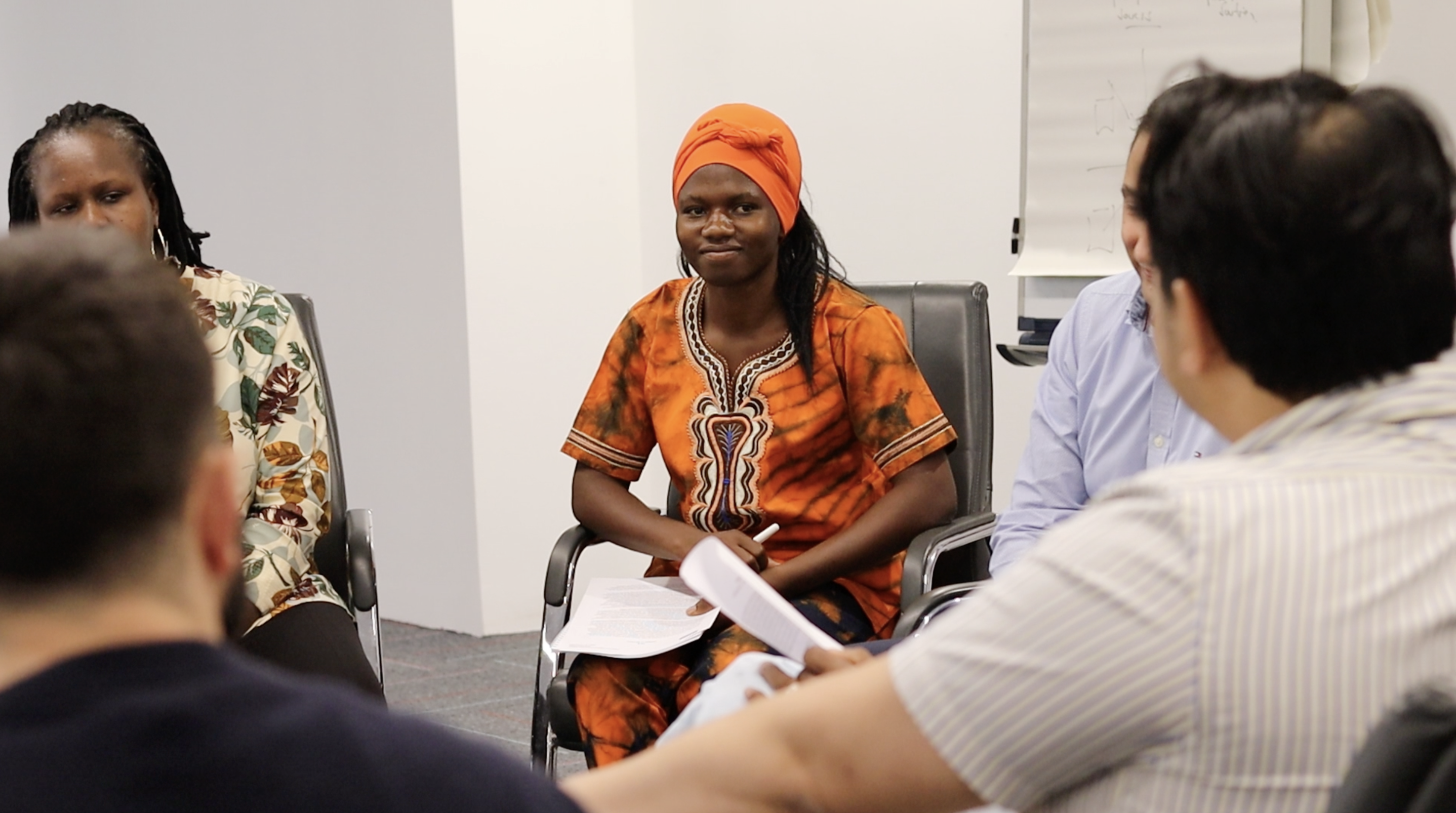
Brigitte Ouoba Labemba works in Burkina Faso as Head of the Humanitarian and Social Cohesion Department at the Association for the Development of Village Communities (ADCV).
Brigitte joined the CCHN community in 2021 after she participated in a humanitarian negotiation workshop organised in Burkina Faso. Since then, she has become a facilitator and guided other humanitarians on how to use the CCHN methodology to prepare their negotiations in a more systematic way.
She has also taken part in the Pressure Management programme, which enables humanitarians to learn valuable techniques to better withstand pressure in high-stakes negotiations. Through the CCHN mentoring programme, she was matched with another humanitarian professional who accompanies and supports her in her work; after this very positive experience, she became a mentor.
Hello and welcome Brigitte! Tell us how you became a humanitarian.
When I was little, I often saw the World Food Programme (WFP) coming to help people in Burkina Faso. However, when they came to distribute aid, we didn’t know exactly what they had based their distribution on.
I grew up with the desire to go into humanitarian work to correct this very common problem of giving what people don’t necessarily need and leaving their real needs aside.
From 2019, I had the opportunity to work as a volunteer with non-governmental organisations such as WFP, INTERSOS as well as ADCV doing targeting, household surveys and post-distribution assessments, especially in villages and communes in the eastern region of the country.
It was during this period that I was able to put forward the ideas and needs of the communities. For me, it was a duty and an obligation to do so. In this way, aid was adapted to their needs and distributed in the most equitable way possible.
Since those experiences, I have been really motivated to stay involved in the humanitarian world.
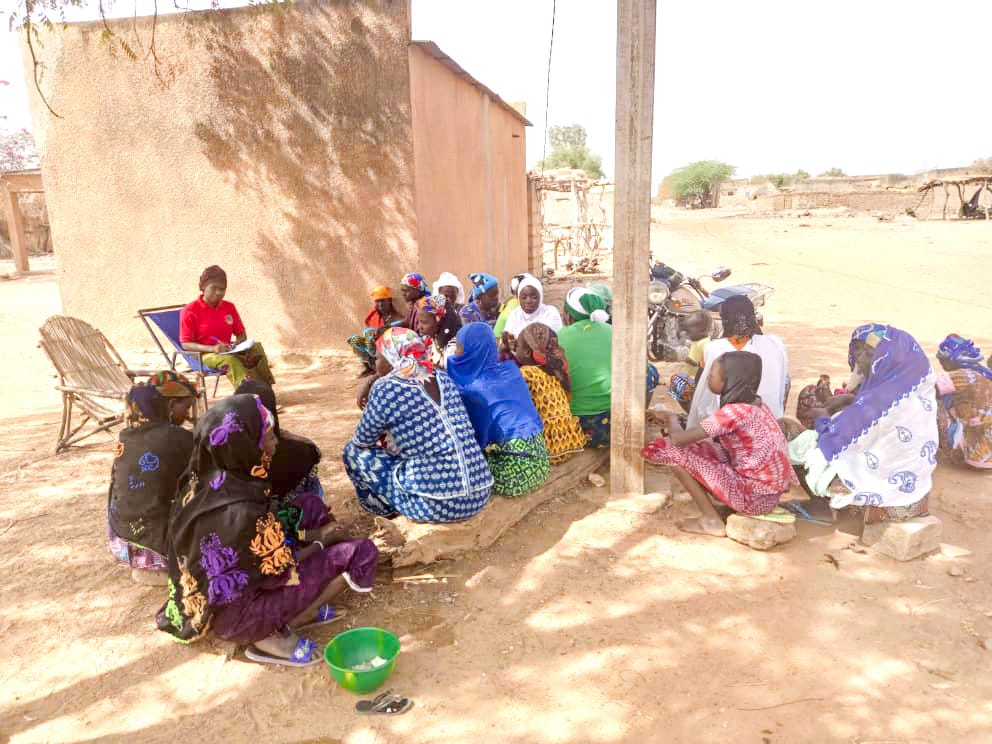
How did you join the CCHN community?
At first, when the Director of ADCV signed me up for the CCHN workshop on humanitarian negotiation, I thought: “Well, what is humanitarian negotiation? What am I going to do there? Will I get anything out of it?”
After the three days of the workshop, I realised that the content was really rich. At the beginning, I expected a typical workshop where they speak a lot and you feel overwhelmed with information.
In reality, the workshop focused more on the exchange of experiences. For example, I had the chance to exchange with humanitarian colleagues who were working in other regions such as Mali, the Democratic Republic of Congo, Niger, but also Senegal. It comforted me to know that I was not alone, that we all have very similar problems and that there are solutions.
During the workshop, I learned how to use the “Naivasha grid,” the methodology developed by the CCHN to prepare for a humanitarian negotiation in a systematic and effective way.
After learning how to apply it, I informed my team on how to use it. Being able to prepare our negotiation in a more organised way allowed us to be more efficient during the period 2021-2022, which the association’s partners really appreciated.
Tell us about a negotiation where the CCHN tools helped you.
In 2022, I had to deal with a negotiation that I will never forget.
We had to do an assessment in an area where we had not worked before.
The first negotiation to gain access to the area failed. We first needed a note explaining the reasons for the intervention, but as this was our first mission of this kind, we had no experience of doing this.
Following this, we met as a team to analyse the situation with the “network of influence” tool and asked ourselves: What is missing? Did we follow all the steps?
We were dealing with an authority that didn’t want to give us access, so we had to go around them and talk to their superior. But how to do that?
Fortunately, there was someone in our team who knew a relative of the superior. We had to go through this before we could start!
When our contact got in touch with the superior, the very next week we had the appointment with him. I thought: “Wow, the network of influence is really important!” I was really happy that day.
In summary, the negotiation tools developed by the CCHN are something you do intuitively when preparing to talk with an interlocutor, but doing it systematically helps to break the deadlock in difficult negotiations.
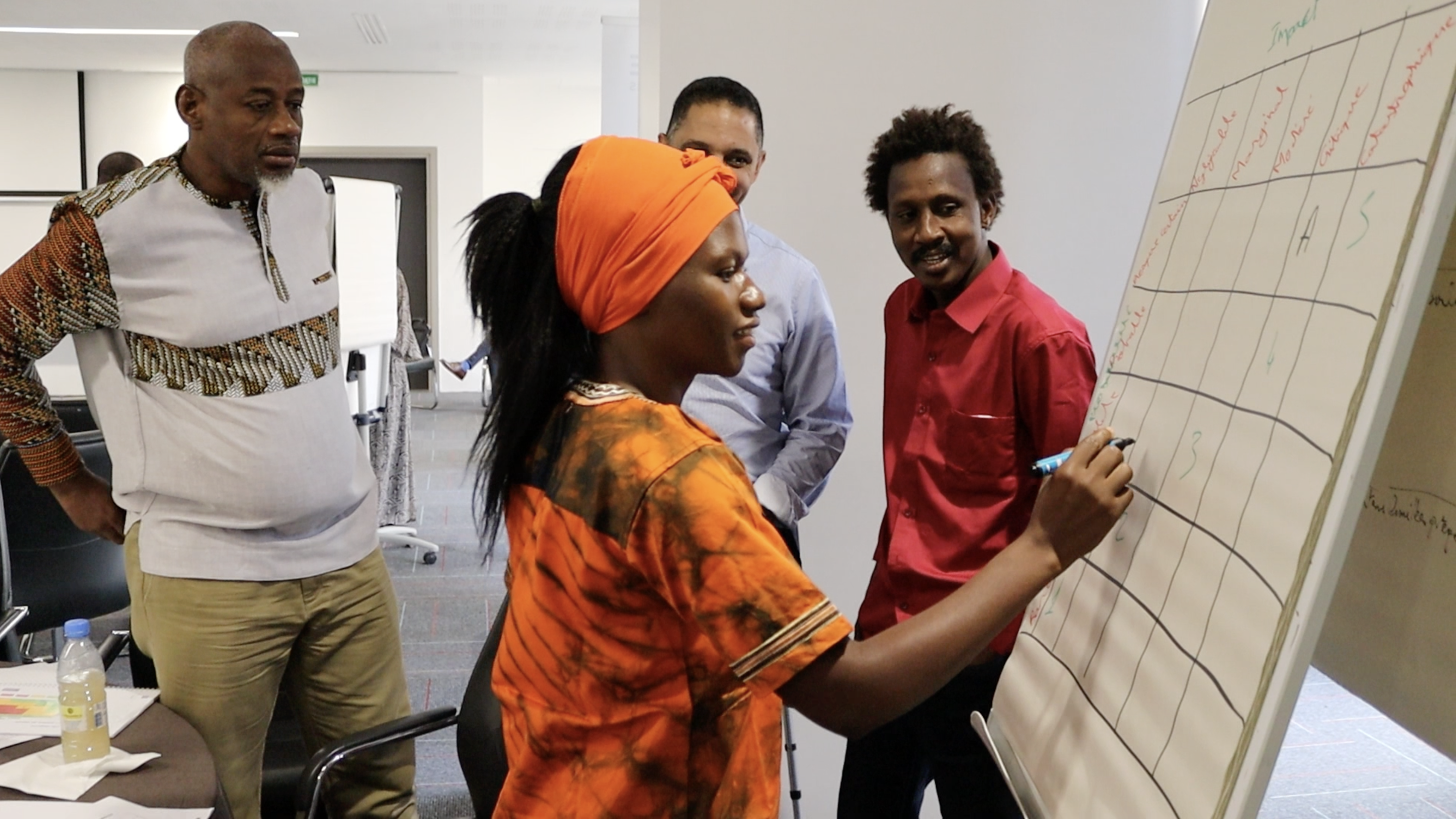
How do you handle the pressure of difficult negotiations?
Before, when I was stressed, I would just sleep. That all changed after attending the pressure management workshop.
I learned to use my breath. Breathing, taking air, allows you to relax and come back to yourself. When you are stressed, part of your brain thinks that it is already over, that you are going to die.
I have learned to use breathing techniques to channel my energy, which helps to pass the feeling of stress or anxiety.
And when things really don’t work out, I call my mentor. It makes me feel better to know that someone is listening to me, even if they don’t have a solution. I feel less alone.
The humanitarian world is very masculine. There is often a belief that women should not go to the field because it is too dangerous. In your work, have you ever faced similar obstacles?
Yes, this has happened to me…
Some people, when they first see me, do not think I am capable of doing my job. Some people, especially at the beginning when they don’t know me, think that I have no business being in negotiations. But often, when I intervene in our meetings, they realise that I am not what they expected. So, they judge me by what they see, and they don’t expect to see the substance of the thing.
Besides, when you are small, like me, they think you are more of a child, and you don’t have a certain capacity.
At first it was frustrating, but in the long run I came to understand that I am a professional humanitarian, I work to help people and I am not here for others who put me down.
Do you have any final words for those who don't know the CCHN community yet?
If I had any advice to give, I would say to humanitarians that it’s worth being part of the CCHN community. Just attend a (free) workshop on humanitarian negotiation! For me, this network has become a family that encourages me and allows me to improve my skills as a humanitarian negotiator. I especially encourage women to get involved in the community and show that even as a woman you can also go to the frontlines and succeed.
